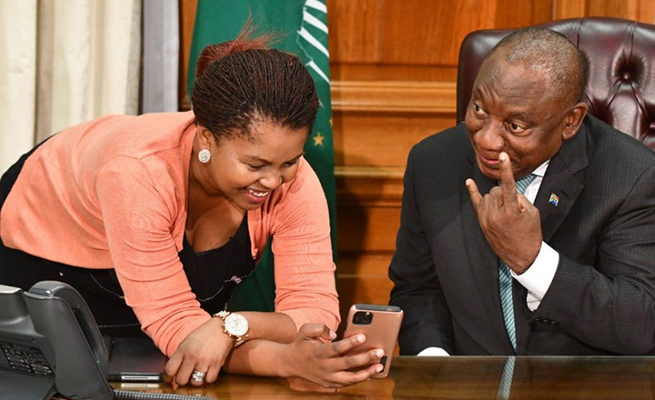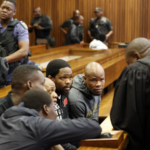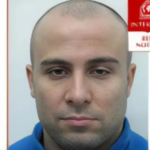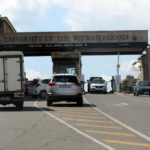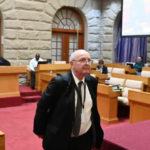JOHANNESBURG – President Cyril Ramaphosa's recent decision to establish a judicial commission of inquiry to investigate allegations of corruption and criminality within the upper echelons of South Africa's law enforcement agencies has sparked a debate, with some praising the move and others questioning its efficacy and potential cost.
The announcement, made on July 13, 2025, came in response to explosive claims by KwaZulu-Natal Police Commissioner General Nhlanhla Mkhwanazi regarding a criminal syndicate allegedly infiltrating the country’s law enforcement and intelligence agencies. Ramaphosa stated that the commission was "necessary" to establish the facts through an independent, credible, and thorough process to safeguard public confidence in the police service and put the era of state capture behind us.
Commissions of Inquiry are formal investigations into serious public concerns. While they can restore trust and offer key recommendations, they are not courts, and their findings are not legally binding, often leading to frustration when no prosecutions follow.
While the African National Congress (ANC) welcomed the move, describing it as "a clear demonstration of the seriousness with which the President and government respond to allegations of corruption and criminal conduct," critics across the political spectrum have been less enthusiastic.
Since 2018, Ramaphosa has launched five commissions and overseen one other inquiry. This does not include the numerous non-judicial inquiries, panels, and advisory bodies, which are not strictly judicial commissions of inquiry under the Commissions Act or the Constitution.
Democratic Alliance (DA) leader and Agriculture Minister John Steenhuisen accused the president of shirking responsibility, stating, "The President has once again outsourced executive responsibility to a commission." He added that South Africans have grown cynical of talk shops, task teams, and commissions which they see as buying time and avoiding accountability.
Economic Freedom Fighters (EFF) spokesperson Sinawo Thambo echoed that sentiment, writing, "The challenge is not a Commission of Inquiry… as a mechanism, but the track record of implementing recommendations." Thambo argued that the dismal implementation record has meant matters are set aside until society loses track, accusing the President of kicking the ball to touch and maintaining a sense of action without actually acting.
GOOD Party’s Brett Herron suggested that existing bodies like the Special Investigating Unit should be used instead, arguing that commissions have proven "too slow, too cumbersome, and too costly."
Against this backdrop of skepticism and cautious optimism, it is crucial to examine the other Commissions of Inquiry launched by President Ramaphosa and assess their outcomes:
1. Tax Administration and Governance by the South African Revenue Service (SARS) – Nugent Commission (2018)
Established in May 2018, the Nugent Commission, chaired by retired Judge Robert Nugent, investigated governance and operational failures at SARS, particularly under former Commissioner Tom Moyane. Moyane's leadership was blamed for undermining the agency’s ability to collect revenue. The commission found significant mismanagement and deliberate weakening of SARS under Moyane’s tenure. Following an interim report, Ramaphosa fired Moyane in 2018, and Edward Kieswetter was appointed as the new SARS Commissioner, who is credited with reforming the agency. This commission is considered one of the more impactful ones, as it led to tangible leadership changes and institutional reforms.
2. Allegations of Impropriety Regarding the Public Investment Corporation (PIC) – Mpati Commission (2018)
Launched in October 2018, the Mpati Commission of Inquiry investigated allegations of mismanagement and improper investment decisions at the PIC, which manages government pension funds. Chaired by Justice Lex Mpati, the commission found that then-CEO Dr. Dan Matjila had used his position to improperly influence investment decisions for personal or political purposes. Matjila resigned before the inquiry concluded. Despite the commission’s findings, no prosecutions have been publicly confirmed, prompting criticism over the lack of follow-through and accountability.
3. Fitness of Advocates Nomgcobo Jiba and Lawrence Mrwebi to Hold Office in the National Prosecuting Authority (NPA) – Mokgoro Commission (2018-2019)
The Mokgoro Inquiry, launched in November 2018, investigated misconduct by senior NPA officials Nomgcobo Jiba and Lawrence Mrwebi, amid concerns over political interference during the Zuma era. The commission, chaired by retired Justice Yvonne Mokgoro, examined their roles in controversial decisions and recommended their removal from office, highlighting systemic issues within the NPA. Ramaphosa dismissed them shortly after, marking a key step in restoring the NPA’s credibility. While praised for swift action, unlike the slower Zondo Commission, critics noted the lack of criminal prosecution.
4. Allegations of State Capture, Corruption, and Fraud in the Public Sector – (Zondo Commission) (2018–2022)
This high-profile commission, first announced by former President Jacob Zuma but implemented and overseen by Ramaphosa, investigated allegations of state capture, corruption, and fraud within public institutions. The Zondo Commission, chaired by then-Deputy Chief Justice Raymond Zondo and costing nearly R1 billion, ran for four years and uncovered extensive evidence of state capture involving public and private sector actors, implicating over 1,400 individuals. While Ramaphosa accepted most of the findings in October 2022 and implemented some actions, such as leadership changes at SARS, the freezing of R14 billion in assets, and the recovery of R5.4 billion, actual prosecutions have been limited. 51 individuals and 27 entities are facing criminal charges, well below the 1,438 individuals and entities in its final report, prompting public frustration of its true effectiveness.
5. Delays in Investigation and Prosecution of Truth and Reconciliation Commission (TRC) Cases (2025)
Announced in April 2025 and formalised in May 2025, this commission investigates allegations of interference that delayed the investigation and prosecution of apartheid-era crimes referred by the TRC to the NPA. Chaired by retired Constitutional Court Judge Sisi Khampepe, the commission is ongoing, with no reported findings yet.
6. Allegations Regarding Law Enforcement Agencies (2025)
Announced on July 12, 2025, this commission, chaired by Acting Deputy Chief Justice Mbuyiseli Madlanga, will investigate explosive allegations by KwaZulu-Natal Police Commissioner Lt. Gen. Nhlanhla Mkhwanazi about a criminal syndicate infiltrating law enforcement and intelligence structures. The President suspended Mchunu and appointed Professor Firoz Cachalia as acting minister, citing the need for the commission’s work to proceed without interference. Interim reports are expected after 3 and 6 months, respectively.
As South Africa awaits the findings of the latest Commission of Inquiry, the effectiveness of these investigative bodies remains a subject of intense debate. While some have yielded tangible results, such as leadership changes and institutional reforms, others have been criticised for their slow pace, high costs, and limited impact on prosecutions.

Follow Us on Twitter

